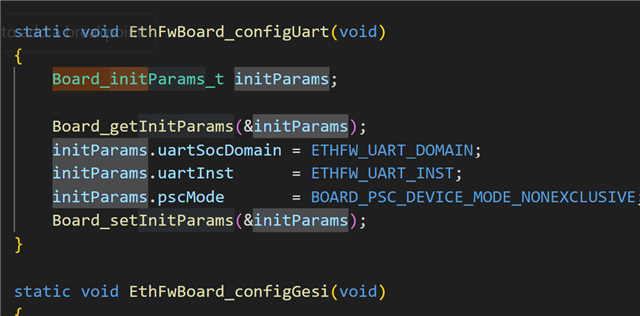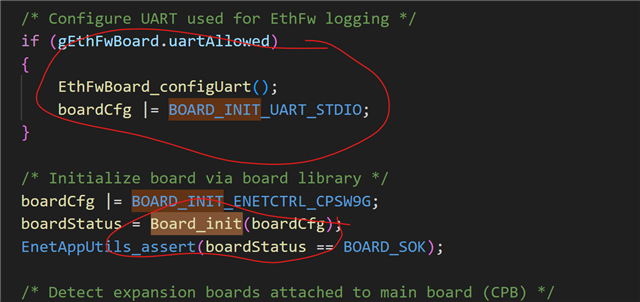Tool/software:
As part of the migration from PSDK7 to PSDK9 for mcu and main domain, I started by generating the examples contained in the psdk, compilation is working properly. These are the conditions of my current device and the test I want to run with the new psdk9:
- Current SW in my device is using psdk 7. MCU1_0 core is using TI RTOS. MAIN2_1, MAIN3_0 and MAIN3_1 are using autosar.
- For the migration to psdk9, the idea is to use FreeRTOS for all cores: MCU1_0, MAIN2_1, MAIN3_0, MAIN3_1. Here an small question: Is TI-RTOS still supported? if yes, which one is recommened TI-RTOS or FreeRTOS and why?
- I started with some basic build using the FreeRTOS example for MAIN3_0, I generated the file with extension .xer5f and I tried to load it in my device by updating the symbolic link j7-main-r5f1_0-fw to point to the new image. However, once I reboot the device, I still see the OLD image being executed, I can tell that because the OLD image is sending logs over the UART port. After some 15 seconds, the device reboots and this happens everytime. Once I restore the symbolic link to the old image, the reboots stop.
- OLD image is generated in Windows environment with .elf extension. New one is generated in Linux and creates a file with .xer5f extension.
What could be wrong with this new image? is the file format incorrect? should Linux also be updated to psdk9 along with the MCU3_0 core?
I would really appreciate your help in this topic.
Regards,
José Daniel




